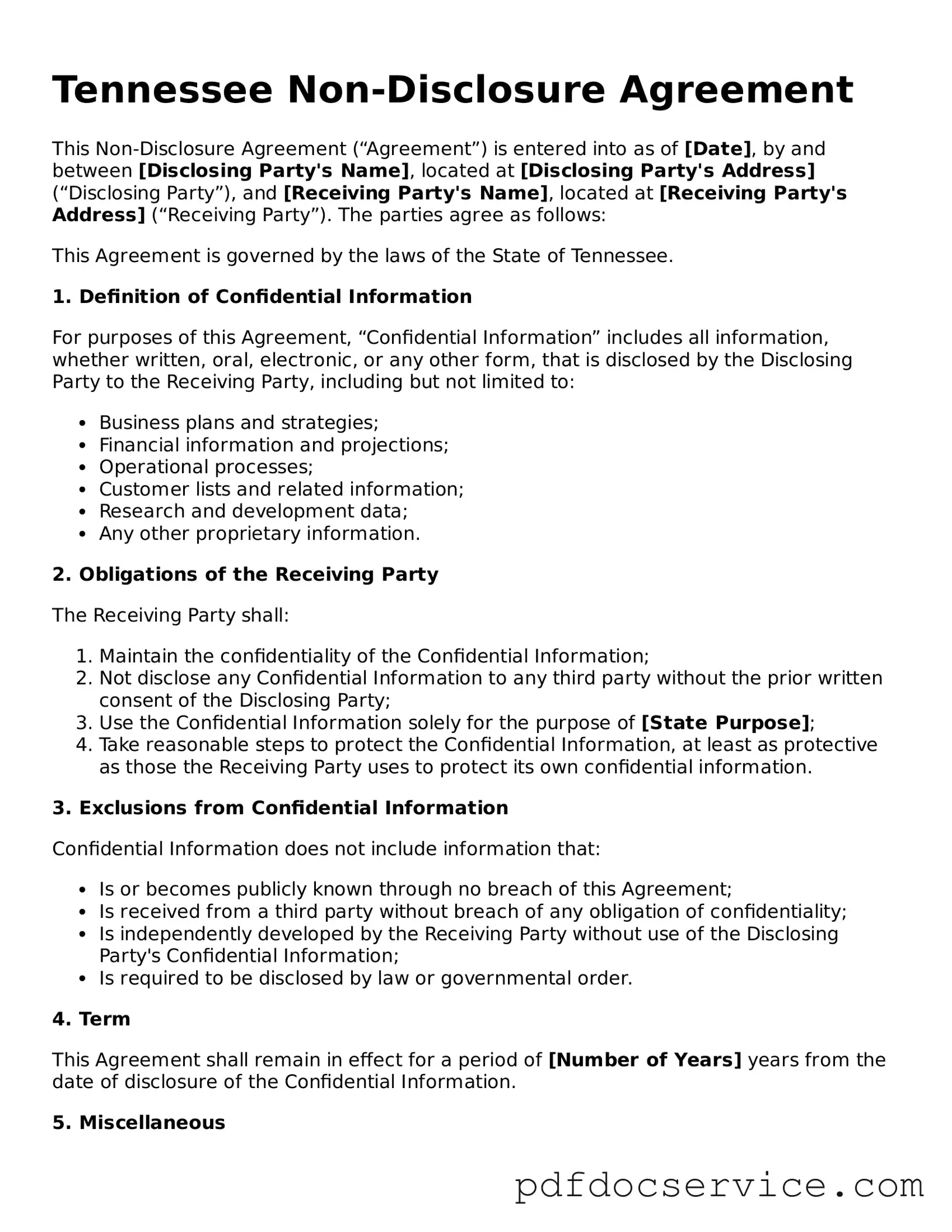What is a Non-disclosure Agreement (NDA) in Tennessee?
A Non-disclosure Agreement (NDA) is a legally binding contract that protects confidential information shared between parties. In Tennessee, this agreement ensures that sensitive information, such as trade secrets, business plans, or proprietary data, remains private. By signing an NDA, both parties commit to keeping the information confidential and not disclosing it to unauthorized individuals.
When should I use an NDA?
An NDA is useful in various situations, including:
-
When discussing business partnerships or collaborations.
-
During the hiring process, especially for positions involving sensitive information.
-
Before sharing proprietary information with potential investors or clients.
-
When engaging in negotiations that involve confidential data.
Using an NDA helps protect your interests and ensures that sensitive information is not misused.
What should be included in a Tennessee NDA?
A comprehensive NDA typically includes the following elements:
-
The definition of what constitutes confidential information.
-
The obligations of both parties regarding the handling of the information.
-
The duration of the confidentiality obligation.
-
Any exclusions from confidentiality, such as information that becomes public through no fault of the receiving party.
-
The consequences of breaching the agreement.
Including these components helps clarify expectations and responsibilities for both parties.
How long does the confidentiality obligation last?
The duration of the confidentiality obligation can vary based on the agreement between the parties. In Tennessee, it is common for NDAs to specify a duration, which can range from a few years to indefinitely. However, it is essential to ensure that the duration is reasonable and justifiable based on the nature of the information being protected.
Can I enforce an NDA in Tennessee?
Yes, NDAs are enforceable in Tennessee as long as they are reasonable and not overly broad. If a party breaches the agreement, the other party can seek legal remedies, which may include monetary damages or injunctive relief. It is advisable to consult with a legal professional to ensure that your NDA is properly drafted and enforceable.
What happens if someone breaches the NDA?
If a party breaches the NDA, the non-breaching party has several options. They can pursue legal action to seek damages or an injunction to prevent further disclosure of the confidential information. The specific remedies available will depend on the terms outlined in the NDA and the nature of the breach. It is crucial to document any breach and consult with a legal advisor to determine the best course of action.
Is it necessary to have a lawyer draft my NDA?
While it is not strictly necessary to have a lawyer draft your NDA, it is highly recommended. A legal professional can ensure that the agreement is tailored to your specific needs and complies with Tennessee laws. This can help prevent potential issues in the future and provide peace of mind that your confidential information is adequately protected.

